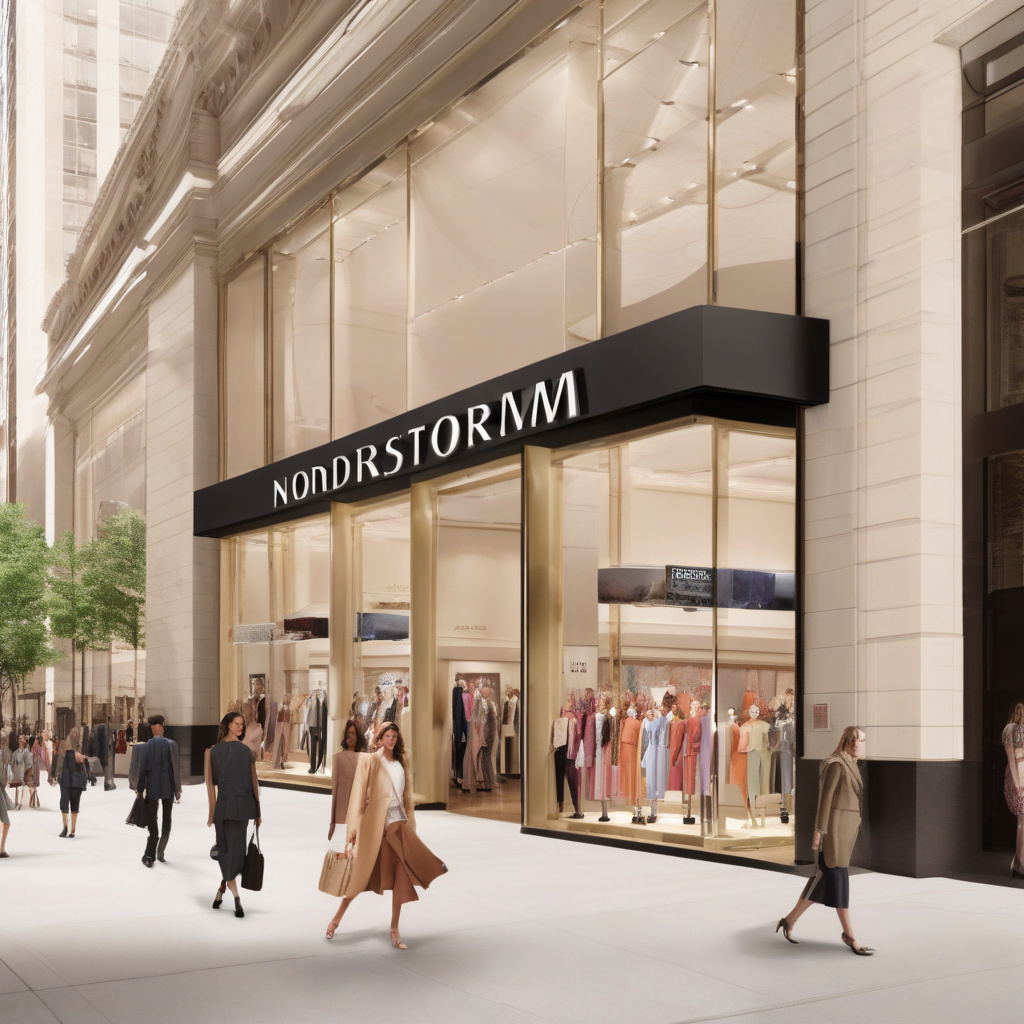Could Tariffs Sink Nordstrom’s Go-Private Deal?
In the ever-changing landscape of retail finance, one question looms large: Could tariffs jeopardize Nordstrom’s recent go-private deal? As the luxury department store chain navigates a path away from public scrutiny, external factors like trade policies pose significant risks, albeit small ones, according to analysts from William Blair.
Nordstrom’s planned transition to a private entity marks a critical pivot for the company. The $2 billion deal, which aims to provide a more flexible operational framework, is intended to help the company streamline its offerings and adapt to the fast-paced retail environment. However, the potential impact of tariffs on this financial maneuver cannot be understated.
Tariffs, which are taxes imposed on imported goods, have been a contentious topic in recent years, particularly in the context of U.S.-China trade relations. The retail sector, heavily reliant on imports, is particularly vulnerable. For Nordstrom, an increase in tariffs can lead to higher costs for goods that are sourced internationally, thereby squeezing margins even further.
William Blair analysts have pointed out that while the risk to Nordstrom from tariffs is currently small, it is not negligible. A sudden change in trade policies could lead to increased costs, which would directly impact profitability. For example, if tariffs were imposed on luxury goods, Nordstrom’s core merchandise could see price hikes that might discourage consumers from spending. This scenario would not only affect sales figures but could also complicate the financial dynamics of the go-private deal.
Additionally, the current retail environment is marred by inflation and shifting consumer behaviors. With everyday prices rising, consumers are more selective about their spending. If Nordstrom’s costs increase due to tariffs, the company may have to pass those costs onto the consumer, potentially leading to reduced demand. In a scenario where luxury spending is already under pressure, this could create a perfect storm for Nordstrom.
Consider the implications of a similar situation faced by other retailers in recent years. For instance, companies like Target and Walmart have had to reassess their pricing strategies in response to tariff increases. Target’s CEO, Brian Cornell, noted in a recent earnings call that while they strive to absorb some costs, they are also forced to adjust prices to maintain margins. Such adjustments can have a cascading effect on consumer behavior, particularly in the luxury segment where price sensitivity can be pronounced.
Moreover, the operational flexibility that a go-private status offers Nordstrom may not be enough to shield it from the effects of tariffs. While going private can allow for more strategic decision-making free from quarterly earnings pressures, it does not eliminate the fundamental challenges posed by external economic factors. The agility that private ownership provides must be matched with a proactive approach to manage cost structures and pricing strategies effectively.
Despite these challenges, there are also potential benefits to Nordstrom’s go-private deal that could mitigate some of the risks associated with tariffs. For example, being private may enable the company to invest more in technology and e-commerce, areas that have become increasingly important in attracting consumers. A robust online presence could help offset any downturn in physical store sales due to increased prices from tariffs.
Furthermore, the move to private ownership may also allow Nordstrom to explore different sourcing strategies, potentially diversifying its supply chain to minimize tariff impacts. By engaging with a broader range of suppliers or even considering domestic manufacturing options, Nordstrom could reduce its reliance on imported goods exposed to tariffs.
As Nordstrom moves forward, the key will be how well it can balance these opportunities against the backdrop of external pressures. The company will need to remain vigilant about the evolving trade landscape and be prepared to adjust its strategies accordingly.
In conclusion, while tariffs pose a small risk to Nordstrom’s go-private deal, they are a reminder of the interconnected nature of global trade and retail. The company’s ability to navigate these challenges will be crucial in determining its success in the private sector. The stakes are high, and with the right strategies in place, Nordstrom could not only survive but thrive in this new chapter.
#Nordstrom #RetailFinance #GoPrivate #Tariffs #BusinessStrategy
